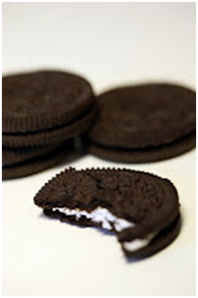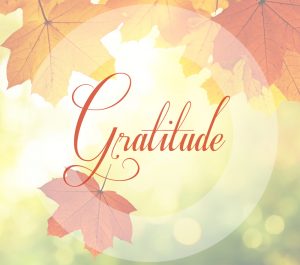I’m Both
Mid-summer in Charlotte. My lungs tire easily while laboring to extract oxygen from the thick, syrupy air. I’m a fair-weather runner. I don’t run when it’s too cold, and I don’t run when it’s too hot. A few days ago, I arose to find that we’d been given an unexpected remission from weeks of incessant heat. The air was a crisp 56 degrees. It was an opportunity not to be missed. I laced up my shoes and stepped out into what felt like the first hints of autumn. My run was particularly enjoyable. The air was cool and clean, the paths were peaceful, and the music on my iPod calmed my soul. I had temporarily defied the gravity of my own lethargy, had risen early to challenge my muscles and lungs, and had pushed through the last leg of the run. Upon arriving home, I was tired, but the kind of tired that was deeply rewarding. I had done something good for my body. I felt refreshed and healthy. And then… I promptly ate a handful of Oreo cookies.

I would like to think of myself as being increasingly health-conscious. We eat organic foods whenever possible, limit our red meat intake, consume whole-wheat rather than white breads and pastas, and encourage exercise as a life-long habit. But then there are the Oreos. My kryptonite. And sea-salted dark chocolate almonds from Trader Joes. Against those, I have little power. I would like to define myself in terms of health, not indulgence, yet both are true. I am both healthy and indulgent at the same time. A paradox of sorts… or rather a more complete picture. I am both forgiving and critical. I am gracious and demanding. I am deeply flawed yet wonderfully made. If I deny either side of the equation, I hold an unrealistic picture of myself.
And if I am both at the same time, then I need to acknowledge that the same is true for others. Those who I hold closest and in highest regard have the capacity to fail miserably. And those who I find hard to love, well… there is another side to that equation as well.
During a sermon on forgiveness, Tim Keller used a caricature artist as to illustrate the way we often view difficult people. The caricature artist takes his subject’s most demonstrative characteristic and exaggerates it. He then captures it on paper to be frozen in time. For instance… if the subject has slightly large ears, the artists creates those ears to be far larger than life, then in drawing them, dooms the subject to a likeness that is unchangeable.
We do much the same thing, particularly with someone who is difficult to love. We tend to look at that person and see the attributes which are most irritating… or most unlikeable… or which cause us great pain. And then we exaggerate them and freeze in time the picture that we have created. It works out nicely, you know. As long as I can convince myself that the person who is causing me pain is primarily evil, or selfish, or suffers from some deep neurosis, then I feel a certain relief from obligation. Could there be another side to the equation? Well that just complicates things.
Many of us go through life rather unaware that we make assumptions about others, draw our own caricatures, and file them neatly away in our mental sketchbooks. This is particularly true when we’re looking at those closest to us. We think we have them figured out. We forget that there is always another side to the equation. There is no doubt more than we see. Or unfortunately more than we care to see.
So what is the antidote to assumption? How can we look beyond the mental caricatures that we have created in order to see the multi-dimensional people who God actually created? How can we begin to see them as “fearfully and wonderfully” made? The antidote to assumption is curiosity.
So if my husband (theoretically, of course) is distant or aloof, I could take his behavior personally (theoretically again), OR could I become curious as to what is going on in his job… or with his friends… or in his heart…
If my relationship with a dear friend becomes strained, do I assume that she’s just being selfish or (fill in the blank with whatever you may assume), OR am I willing to be humble and vulnerable enough to ask if I’m the offending party… or if there is something else going on in her life that may have nothing to do with me…
Am I willing to be curious about those closest to me? Those I’ve known for most of my life? Those who I think I have figured out?
A healthy dose of humility and curiosity does have its cons. I may find out that I was wrong. Or that there has been more to love in another than I had imagined. Or that I’ve lived too much of my life drawing caricatures rather than enjoying whole people. Yet it is with that revelation that freedom begins. Freedom from assuming, incorrectly sketching, and missing people for who they actually are. Freedom to see the whole picture, and freedom to love well. Oh yes, and freedom to enjoy both my brisk run and my Oreos.
Julie Silander received her BS degree in Business Administration from Furman University, and she held a variety of roles in the banking industry before becoming a full-time mom. Julie and David have five children, and they have been friends of Barnabas for close to twenty years. Most recently, Julie has been intimately involved in the strategic planning for The Barnabas Center in preparation for the next phase of the ministry. She spends the bulk of her days schooling their three youngest children. She also writes regularly at www.greenertrees.net.









2 comments
Well said. Thanks, Julie Pat Fieno
Thanks, Pat. I’m grateful to have found such grace in this community.